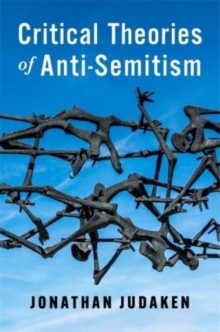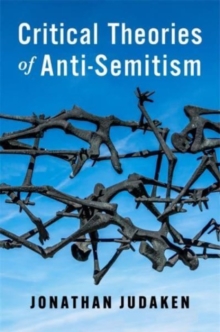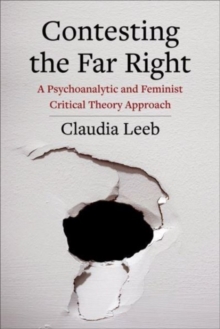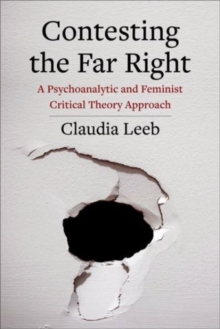
Fear of Breakdown : Politics and Psychoanalysis Paperback / softback
by Noelle ((Home address, best mailing address)) McAfee
Part of the New Directions in Critical Theory series
Paperback / softback
Description
What is behind the upsurge of virulent nationalism and intransigent politics across the globe today?
In Fear of Breakdown, Noëlle McAfee uses psychoanalytic theory to explore the subterranean anxieties behind current crises and the ways in which democratic practices can help work through seemingly intractable political conflicts.
Working at the intersection of psyche and society, McAfee draws on psychoanalyst D.
W. Winnicott’s concept of the fear of breakdown to show how hypernationalism stems from unconscious anxieties over the origins of personal and social identities, giving rise to temptations to reify exclusionary phantasies of national origins. Fear of Breakdown contends that politics needs something that only psychoanalysis has been able to offer: an understanding of how to work through anxieties, ambiguity, fragility, and loss in order to create a more democratic politics.
Coupling robust psychoanalytic theory with concrete democratic practice, Fear of Breakdown shows how a politics of working through can help counter a politics of splitting, paranoia, and demonization.
McAfee argues for a new approach to deliberative democratic theory, not the usual philosopher-sanctioned process of reason-giving but an affective process of making difficult choices, encountering others, and mourning what cannot be had.
Information
-
Out of Stock - We are unable to provide an estimated availability date for this product
- Format:Paperback / softback
- Pages:312 pages
- Publisher:Columbia University Press
- Publication Date:04/06/2019
- Category:
- ISBN:9780231192699
Information
-
Out of Stock - We are unable to provide an estimated availability date for this product
- Format:Paperback / softback
- Pages:312 pages
- Publisher:Columbia University Press
- Publication Date:04/06/2019
- Category:
- ISBN:9780231192699










